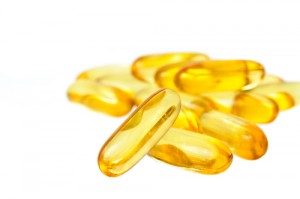 Vitamin D, a powerhouse vitamin that is associated with numerous health benefits, is now associated with lowering the risk for colon cancer. The laboratory of Dr. Lillian Maggio-Price in the Department of Comparative Medicine at the University of Washington published a study in Cancer Research, “Increased Dietary Vitamin D Suppresses MAPK Signaling, Colitis, and Colon Cancer,” detailing the effects of vitamin D on inflammation in the bowel.
Vitamin D, a powerhouse vitamin that is associated with numerous health benefits, is now associated with lowering the risk for colon cancer. The laboratory of Dr. Lillian Maggio-Price in the Department of Comparative Medicine at the University of Washington published a study in Cancer Research, “Increased Dietary Vitamin D Suppresses MAPK Signaling, Colitis, and Colon Cancer,” detailing the effects of vitamin D on inflammation in the bowel.
“Our studies suggest that vitamin D could potentially aid in preventing colitis-associated colon cancer by limiting inflammation which drives tumor formation in these patients,” said Dr. Stacy Meeker, lead author of the paper, in a news story from Fred Hutchinson Cancer Research Center.
Due to the previously established link between adequate vitamin D and decreased colon cancer and inflammatory bowel disease risk, the team, along with Dr. William Grady in the Clinical Research Division, manipulated the diets of mice to include different levels of vitamin D. One group received 1 IU vitamin D per gram of food, while the other group received 5 IU vitamin D per gram of food. The five-fold increase in diet led to a two-fold increase in vitamin D levels in the blood and a four-fold decrease in risk for invasive colon cancer.
A unique aspect of the study that gives it greater impact is its mouse model of human inflammation-associated colon cancer. The team chose to create a genetically engineered mouse lacking the gene SMAD3 rather than treat mice with chemicals or carcinogens to induce extensive colon damage. SMAD3 is part of a cell signaling pathway previously found to be disrupted in colon cancer.
The engineered mice were exposed to Helicobacter bilis, a gut bacteria, in order to induce inflammation and colitis and eventually lead to colon cancer in a few months. This more closely mimicked the human version of inflammatory bowel disease, with is partly driven by an inflammatory response to gut bacteria.
To illuminate the mechanism of vitamin D reducing the risk for colon cancer, the team further investigated evidence of inflammatory bowel disease using a fecal-based assay during the inflammatory stage three to seven days after bacterial infection. Although there was no difference in bacterial colonization in the colon, there was a difference in inflammatory bowel disease presence–the high vitamin D mice had a fecal score of 0.2, and the normal vitamin D mice had a fecal score of 1.0. Furthermore, the high vitamin D mice had fewer immune cell infiltrates in their colons, reduced colitis, lower levels of inflammatory cytokines, and decreased pro-inflammatory signaling pathway activity.
“Our next step is to find out how vitamin D is working to prevent inflammation and whether there is a window of opportunity when vitamin D is effective in colon cancer prevention in inflammation-associated colon cancer,” said Dr. Meeker. “We believe that further studies are needed to evaluate the potential use of vitamin D supplementation as an adjunct treatment in human patients with inflammatory bowel disease.”
